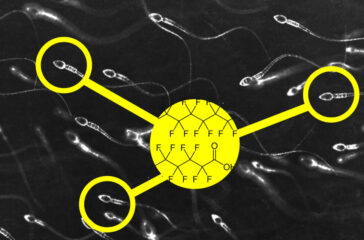Pregnant mothers’ PFAS exposure may affect adult sons’ sperm quality
By Shannon Kelleher
A study that included more than 800 young Danish men found associations between levels of PFAS in their mothers’ plasma during early pregnancy and lower sperm quality when the men reached young adulthood.
 EWG
EWG